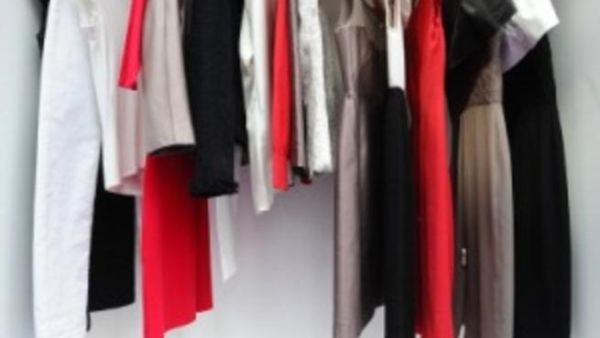Clothing vendors in the capital expect lack-lustre sales this Eid, blaming consumers’ diminishing purchasing power and the unstable weather for slow business in the week leading up to the feast.
Merchants interviewed by The Jordan Times on Wednesday noted that their sales plummeted significantly over the past few days, a period that is usually peak season for most vendors as people traditionally buy new clothes for Eid Al Adha, the Muslim feast marking the end of the pilgrimage season.
“I remember when I first worked at a clothes store, the shopkeeper made around JD2,500 in one day. On Monday, I visited him and he said that he has not earned more than JD300,” Abu Adel Kilani, a garment vendor in Jabal Hussein, told The Jordan Times.
“Most people go to the shops only to look at the merchandise. Some of them go to several stores to find the cheapest item, while others don’t even buy new clothes for Eid,” he claimed.
According to Kilani, in the past people began buying Eid outfits after the end of the holy month of Ramadan.
“Now, we haven’t received any customers so far.”
Saeed Ali, who sells clothes for women, noted that the prices of most garments are beyond the reach of many segments of society.
“Some shop owners sell clothing at high prices, which discourages customers,” he added.
Hatem Shweiki, a public sector employee, also complained about the steep price tags as well as the absence of Syrian clothes in the local market.
“In the past, Jordanians used to buy clothes made in Syria because they were affordable for everyone. Now, they are forced to turn to upscale malls to buy garments, which are too expensive for most people,” Shweiki added.
Ali said most shopkeepers cannot announce sales or discounts because they have expenses to meet.
“The Landlords and Tenants Law is one of the main reasons that most vendors began increasing their prices, because they have to strike a balance between their expenses and profits,” Ali told The Jordan Times, as he waited for customers outside his store.
Kilani said that people decided to save money for the difficult days ahead when they heard that fuel subsidies might be lifted.
“Some people believe that if the government decides to lift fuel subsidies, prices of several goods will increase as well,” he added.
Khamis Al Qaisi, another clothes vendor, blamed the unstable weather conditions for people’s reluctance to buy new attire.
“Some clients fear that if they buy winter clothes, the weather during Eid might get hot, so they opt to wait while others decide not to buy anything,” he added.
Bader Dawood, a private sector employee, said he decided not to buy a new outfit for Eid because weather conditions are unpredictable.
“I will buy clothes after the end of Eid Al Adha because it will get colder. Also, prices will drop after the feast,” the 26-year-old said.








